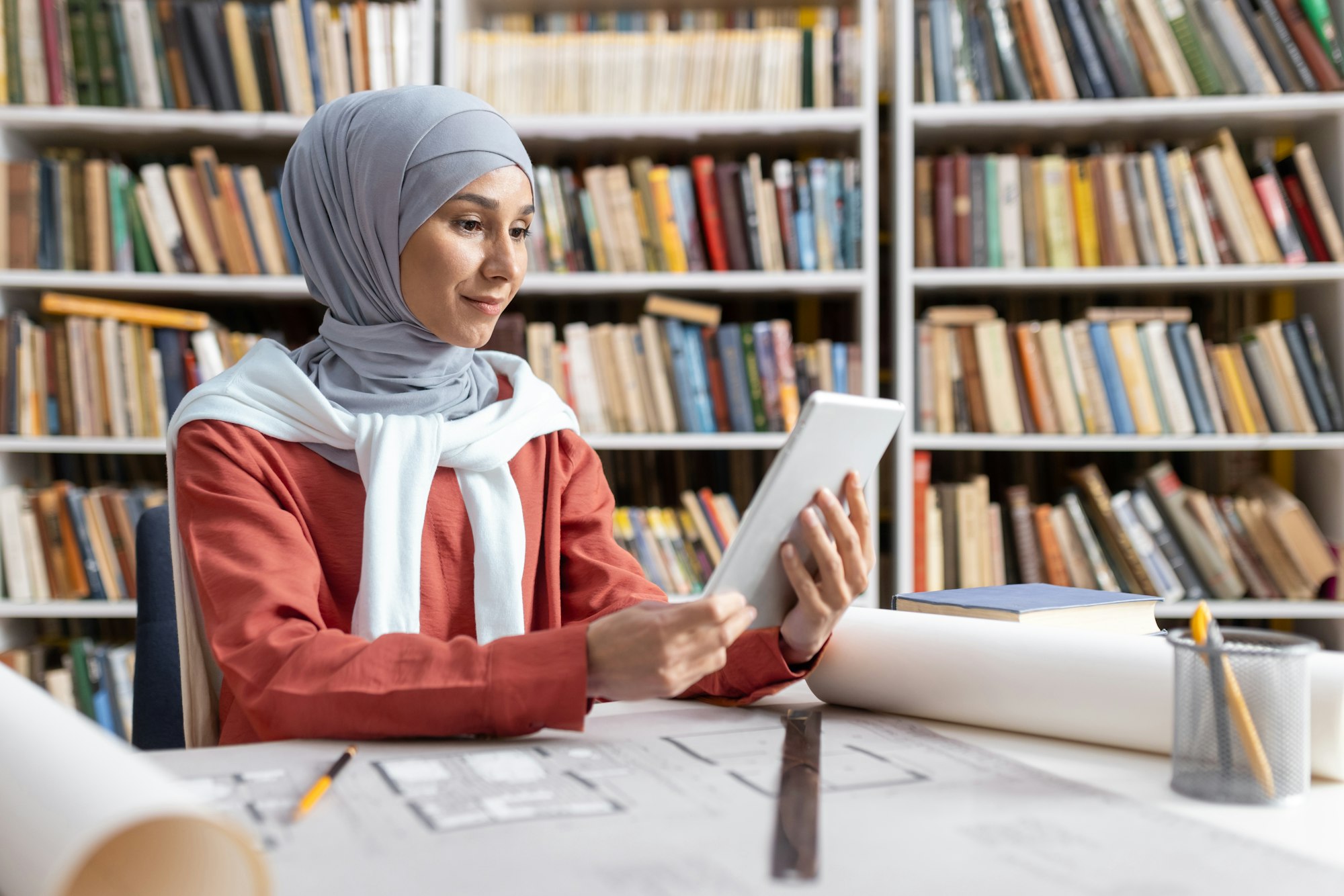
Throughout Islamic history, women have played vital roles in shaping and building Muslim communities. From the time of the Prophet Muhammad (PBUH), women have been scholars, leaders, educators, and key figures in social change. Today, Muslim women continue to be essential in nurturing, leading, and serving their communities. However, in many places, their participation in leadership roles within the mosque, community service, and local initiatives remains underappreciated or hindered by cultural barriers.
In this article, we’ll explore how Muslim women can take on leadership roles, the benefits of their involvement, and the steps communities can take to ensure that women are empowered to contribute to the strengthening of the Ummah (Muslim community).
The rich history of women in Islam provides a powerful example of female leadership and contribution. Khadijah (RA), the first wife of Prophet Muhammad (PBUH), was a successful businesswoman and a key supporter of the Prophet in his early mission. Aisha (RA), another wife of the Prophet, was a renowned scholar whose narrations of hadith are still studied today. Women such as Nusaybah bint Ka’ab and Asma bint Abu Bakr also played critical roles in both battlefields and intellectual circles.
These historical examples remind us that women have always been active participants in community-building and leadership. However, in many modern Muslim communities, cultural norms and misconceptions about women’s roles may limit their participation. Reclaiming this legacy is essential for building stronger, more inclusive communities.

In some Muslim communities, women face challenges in accessing leadership roles within mosques or local organizations. This may stem from cultural practices or outdated perceptions about the role of women in public spaces. However, Islamic teachings support the active involvement of women in all aspects of life, including community service, education, and leadership.
Breaking down these barriers requires a conscious effort from both community leaders and members to promote inclusivity. Here are some ways communities can ensure women’s participation:
Inclusive Mosque Spaces: Mosques should provide comfortable, accessible spaces for women to pray, attend events, and participate in decision-making processes. This includes ensuring that women’s sections are clean, welcoming, and adequately equipped for events and programs. Read this!
Encouraging Women’s Leadership: Women should be encouraged to take leadership roles in mosque boards, committees, and local initiatives. Representation at this level ensures that the needs and perspectives of women are considered in the community’s decisions and activities.
Challenging Cultural Misconceptions: It’s important to address cultural attitudes that restrict women’s roles in leadership. Community leaders, including imams, should use Friday khutbahs (sermons) and educational programs to highlight the contributions of women in Islamic history and emphasize the Islamic principle of gender equity.
Muslim women are often at the forefront of community service, whether through organizing charity drives, supporting new Muslims, or leading educational programs. Their involvement in these areas is essential for building compassionate and cohesive communities.
Women bring unique perspectives and strengths to community service, particularly in areas such as:
Social Welfare Programs: Many women have a deep understanding of the needs of families, children, and the elderly. This makes them well-suited to lead or support programs that provide social welfare, such as food banks, clothing drives, or services for the homeless. Look Here
Support for New Muslims: Women are often the ones who provide emotional and social support to new Muslims, helping them navigate their new faith while also managing family or personal challenges. Programs that provide mentorship and support for new Muslim women are particularly important in Western contexts where converts may face social isolation.
Youth Programs and Mentorship: Muslim women can play key roles in mentoring young girls and teenagers, helping them navigate the challenges of growing up in a Western society while maintaining their Islamic identity. Youth programs led by women create safe, nurturing spaces where young Muslim girls can receive guidance and support.

Mosques are the heart of Muslim communities, and ensuring that women are active participants in mosque activities strengthens the community as a whole. Women can contribute to mosque life in a variety of ways:
Education Programs: Women should be involved in organizing and teaching Qur’an classes, Islamic studies courses, and other educational programs for both children and adults. Women scholars, in particular, can provide valuable insight into topics such as Islamic jurisprudence, family matters, and women’s rights in Islam.
Event Planning and Social Gatherings: Women are often natural organizers of social events, whether it’s for community iftars, Eid celebrations, or other gatherings. These events foster community spirit and create opportunities for Muslims to come together in a welcoming environment.
Volunteering and Management: Mosques rely on volunteers for everything from maintenance to organizing large events. Women can and should be part of the mosque’s volunteer management teams, ensuring that their voices are included in the daily operations of the mosque.
Beyond the mosque, Muslim women are actively involved in broader community initiatives that benefit both Muslims and the wider society. Their leadership in these areas reflects Islam’s call for social justice, compassion, and community service.
Interfaith Initiatives: Women often play pivotal roles in interfaith dialogue and community-building efforts that bring Muslims together with people of other faiths. By leading or participating in interfaith events, Muslim women help break down stereotypes, foster mutual understanding, and represent Islam in a positive light.
Civic Engagement and Social Activism: Muslim women can lead efforts to address social justice issues such as homelessness, racial inequality, and environmental sustainability. These initiatives not only benefit the community but also strengthen Muslim women’s visibility as active, contributing members of society.
Political Participation: Encouraging Muslim women to engage in local politics, whether by running for office, voting, or advocating for policies that align with Islamic values, is essential. Women’s voices are critical in shaping policies that affect the Muslim community and the wider society.

When Muslim women are empowered to take on leadership roles in community service, mosque activities, and local initiatives, the entire community benefits. Women bring creativity, compassion, and a unique perspective to leadership roles, helping to build inclusive, dynamic, and resilient communities.
Moreover, empowering women has a ripple effect. When young girls see women in leadership positions, they are more likely to aspire to similar roles themselves. Women leaders also inspire confidence in other women, encouraging them to get involved and make a difference in their communities.
To ensure that women can fully participate in building stronger Muslim communities, the following steps can be taken:
Provide Leadership Training: Offer workshops or seminars focused on leadership skills for women, such as public speaking, event planning, or nonprofit management. These programs can help women feel more confident in taking on leadership roles.
Create Women-Led Spaces: While men and women should work together in most areas, creating women-led spaces and programs within mosques or community centers can provide women with opportunities to lead and organize events tailored to their needs.
Recognize and Celebrate Women’s Contributions: Publicly acknowledging and celebrating the work that women do within the community can help shift perceptions and encourage greater female participation. Recognition can come in the form of awards, public mentions during community events, or highlighting women’s achievements in mosque newsletters.
Women have always been and will continue to be a vital part of building and strengthening Muslim communities. By encouraging and supporting women to take on leadership roles in community service, mosque activities, and local initiatives, we create a more inclusive, dynamic, and spiritually enriched Ummah.
Breaking down barriers to women’s participation not only aligns with Islamic principles but also ensures that the Muslim community benefits from the full range of talent, creativity, and leadership that women have to offer. When Muslim women are empowered to lead, the entire community flourishes.